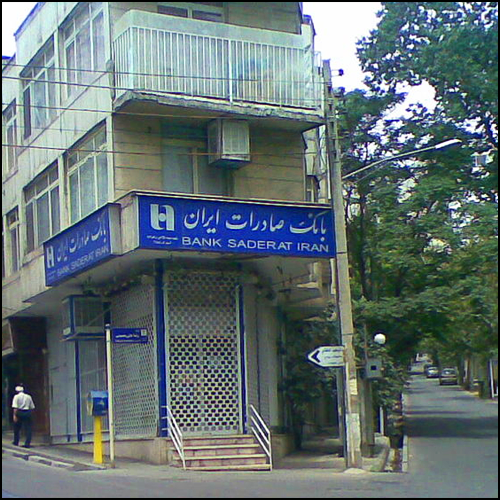 Qantas says it is shocked, shocked that a retired 747 it sold from a desert airplane graveyard in Arizona to a UAE middleman wound up in Iran. The sale came to light back in April 2012 when the Bureau of Industry and Security (“BIS”) issued a temporary denial order against Sayegh Group Aviation, the U.A.E. company that bought three 747s from Qantas and had already, through a series of interconnected straw companies, leased one of the aircraft to Aban Air in Iran.
Qantas says it is shocked, shocked that a retired 747 it sold from a desert airplane graveyard in Arizona to a UAE middleman wound up in Iran. The sale came to light back in April 2012 when the Bureau of Industry and Security (“BIS”) issued a temporary denial order against Sayegh Group Aviation, the U.A.E. company that bought three 747s from Qantas and had already, through a series of interconnected straw companies, leased one of the aircraft to Aban Air in Iran.
According to the Sydney Morning Herald story linked above, the Iranian deal was uncovered by CSDS Aircraft Sales and Leasing, a California-based company which blew the whistle on the deal after Qantas rebuffed its own efforts to buy the planes from Qantas. CSDS said it had previously been approached by Sayegh to purchase aircraft, but that these approaches had raised “red flags” for it. When CSDS heard that Qantas sold the planes to Sayegh instead, it contacted U.S. authorities. The President of CSDS told the Sydney Morning Herald that Qantas “could have easily figured it out if they wanted to.”
Qantas, naturally, disagrees.
”It’s drawing a very long bow to suggest that we’re responsible for the conduct of third parties, who owned or leased aircraft several transactions after the original date,” a Qantas spokesman says.
”Whenever we sell an aircraft, we carry out extensive due diligence on the buyer and their intended use of the aircraft and include strict, specific clauses in the sale agreement reinforcing the buyer’s obligation to comply with all relevant international export controls and regulations.”
There is no evidence that Qantas is under investigation in the U.S. in connection with the sale of the 747 to Iran, so, apparently, U.S. authorities agree with Qantas.

 Posted by
Posted by  Category:
Category: 

 On the heels of North Korea’s nuclear test, the U.N. agreed today to a
On the heels of North Korea’s nuclear test, the U.N. agreed today to a 
 The General Court of the European Court of Justice on February 5
The General Court of the European Court of Justice on February 5 

